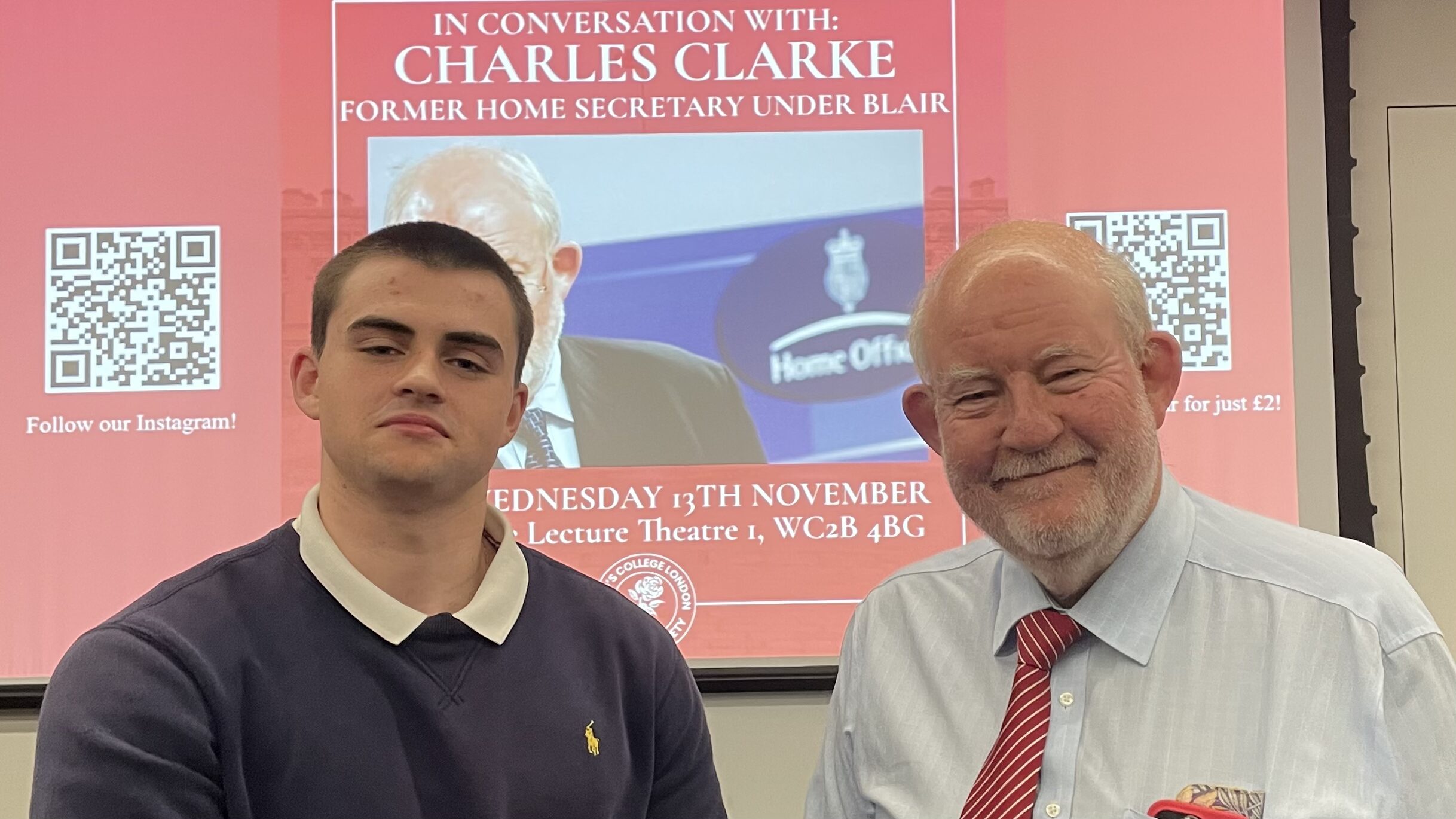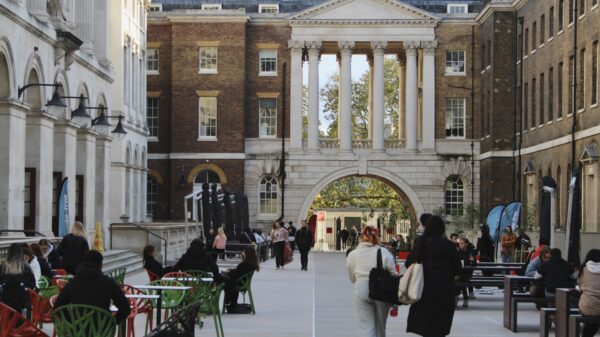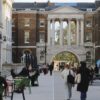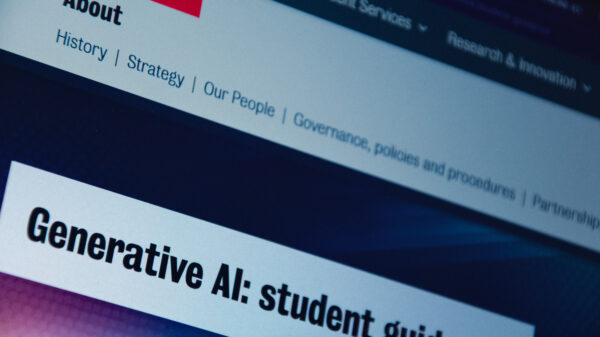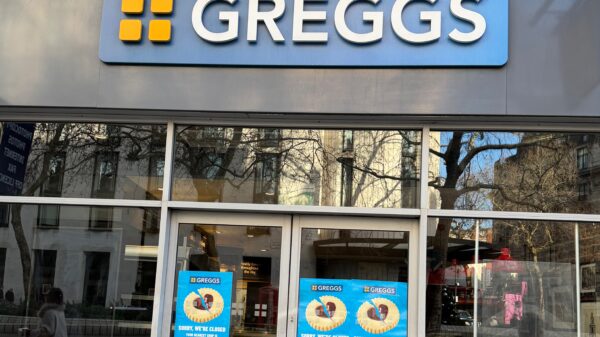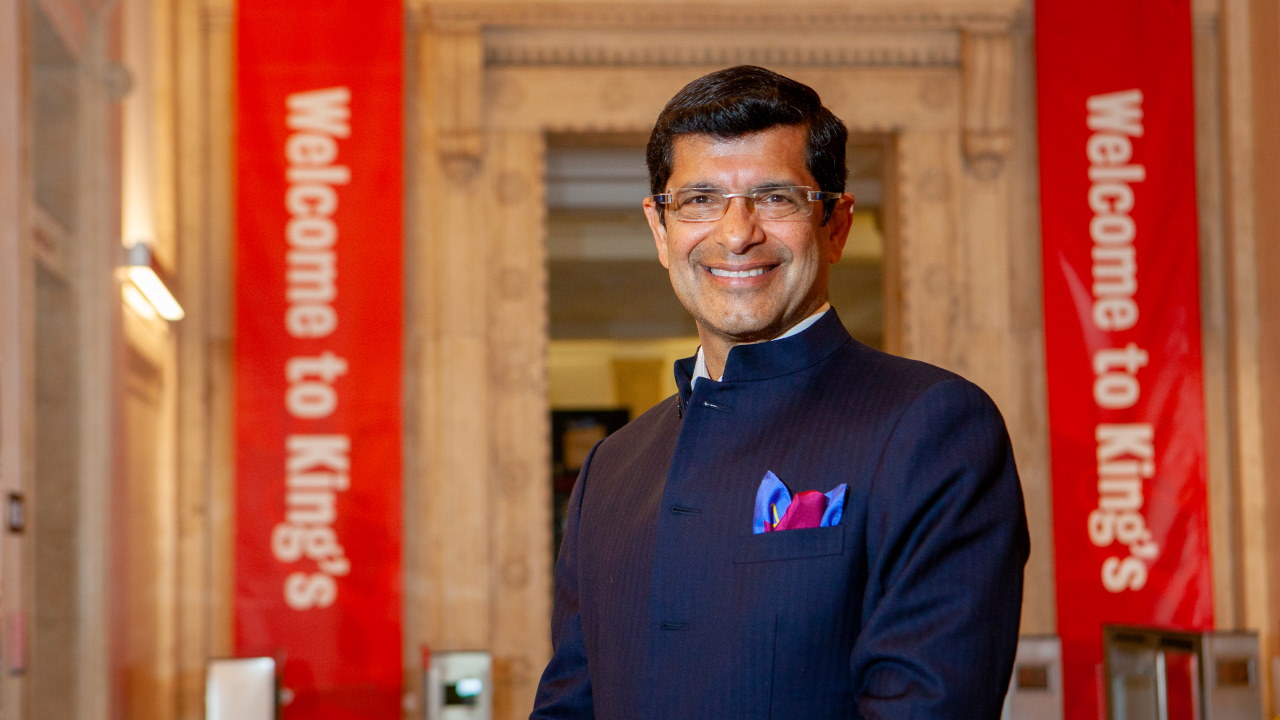Staff Writer Sam McManus examines former Home Secretary Charles Clarke’s insights on Labour’s challenges under a new Trump presidency, including trade, Ukraine and climate policies, alongside reflections on Starmer’s leadership, education policy, and the future of British politics.
Former Home Secretary Charles Clarke has said that Donald Trump’s return to the White House represents a “crisis in international relations” for Sir Keir Starmer’s government.
Speaking to Roar after an event with the King’s College London Labour Society, Clarke highlighted that potential disagreements over trade, Ukraine and climate change could push Britain “in closer alignment with the EU”.
“I think the biggest [issue] is the tariff question”, he said. “That‘s not simply an international relations question, but an economic question, which after Brexit, means we’re cast in between the EU and the US. Labour is going to have to decide what it is trying to do in these circumstances.”
Charles Clarke served as Home Secretary from 2004 to 2006 as one of Tony Blair’s most senior ministers. Having previously worked as Chief of Staff for the former Labour Leader Neil Kinnock, Clarke returned to public life in 1997 and quickly scaled the New Labour ranks, holding successive roles as Minister for Prisons, Labour Party Chairman and Education Secretary before taking charge of the Home Office.
In our interview, Clarke provided an insight into life as a senior politician and gave a measured assessment of Labour’s performance since the party’s return to power for the first time since 2010. Yet, the re-election of Donald Trump was inevitably a cause for discussion, with the President’s seemingly isolationist attitude casting fears as to American involvement on various global issues.
Regarding the war in Ukraine, Clarke remains optimistic about the President’s position. “I think Trump will not be as extreme as his rhetoric has been”, he said. “I don’t think it’s clear that Trump will simply want to abandon Ukraine. I’m sure he will push for some sort of peace settlement, and I’m sure he will want the Ukranians to accept for example that Crimea can no longer be regained, but I think there’s a lot to play for in this whole process, in which the UK will play an important role.”
However, Clarke expressed deep scepticism about any potential UK-US climate agreements under President Trump, who promised to ‘drill, baby drill’ during his inauguration speech on January 20. “I don’t believe Trump has the remotest sympathy for the pro-climate argument”, he said. “It reduces the possibility of world agreements on measures such as those in front of COP.” Trump’s flurry of executive orders on inauguration day vindicates Clarke’s prediction, with the President once again withdrawing the US from the Paris Climate Agreement and declaring a ‘national energy emergency‘ to boost oil and gas production.
Labour’s Performance and Prospects
Trump’s return to the White House comes at a challenging time for the Labour government. Rachel Reeves’ Autumn budget is yet to produce the hoped-for growth figures, while controversies over political donations, tax rises, and early prisoner releases have dented Labour’s standing in opinion polls. The latest Spectator poll, tracking surveys up to January 8, shows Labour with a slim lead at 27%, with both the Conservative and Reform parties at around 23% respectively.
Clarke, however, dismisses this unfavourable polling as temporary. “I think that’s essentially irrelevant, it’s short term, and I don’t think they’ll last”, he said. He attributes current challenges to the unexpected timing of Rishi Sunak’s decision to call an early General election on July 4, which left the Labour brass with limited preparation time for ascension into government. “The change happened quicker than expected, he’s then trying to repair that.”
Clarke, now a visiting professor and political advisor, remains very much involved in Labour circles. He shed light on an impromptu meeting with Starmer during the election campaign, running into the then-Leader of the Opposition at a train station.
Clarke expressed how Starmer “knew that delivery was of the most important thing, and he was aware there would be big changes being in government… he wanted to be able to think through what was the best way to make progress and I think that’s actually what he’s doing”.
The former Home Secretary remained notably confident about Labour’s governance strategy. “The question is whether Labour can come back, which depends on a sense of momentum being moved forward. I’m optimistic about the future, but you can never deny the challenges of being in government; it is a tough bag.”
When pressed about potential plots to remove the Prime Minister, with some Labour figures fearful of poor electoral prospects, Clarke’s response was unequivocal: “I think Labour is almost certain to win the next election and [Starmer] will continue to lead the Labour party.”
Top-Up Fees and Education Policy
Clarke’s time as Secretary of State for Education included the introduction of bills allowing universities to charge controversial ‘top-up’ fees, breaking a Labour manifesto commitment. With the recent announcement that tuition fees are to increase up to a maximum of £9535, critics have claimed Labour’s policy may lead to a class barrier for students from underprivileged backgrounds. When a student at the event challenged Clarke on this decision, which some view as the catalyst for subsequent tuition fee increases, he remained resolute in his defence.
When asked about the risk of a class divide, Clarke responded: “I don’t think that’s going to happen. Firstly, this government is very committed to everybody’s chance to go to university. I think the way to address the problem is by increasing the maintenance loan and not for inflation to be set at a rate which increases the costs as substantially as it is.”
Clarke also presented some potentially controversial views for a restructuring of public funding, even floating the idea of a merger between King’s College London (KCL) and University College London (UCL). “I don’t think all 150 universities should report to be doing world-class research, because broadly speaking, they’re not”, he said.
“I think the question of how universities work with each other is very important. To be provocative, it is not clear to me why KCL and UCL, 200 metres apart, should be completely separate institutions.”
Whilst the former Education Secretary acknowledged the merger would “never be seen as appropriate”, Clarke proposed restricting public research funding for the most elite research institutions, advocating for a more “adventurous approach to how universities work together”.
With more than a third of British universities running at a loss, Clarke’s vision of merged institutions could be the answer to the funding crisis, even if it requires a marriage between the most unlikely of partners. Perhaps there will be a day in the not-so-distant future when the infamous KCL Red is blended with a distinct shade of purple.
Charles Clarke spoke to Roar after an event with King’s College London Labour Society on 13 November 2024.

